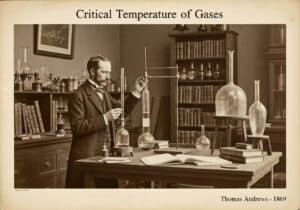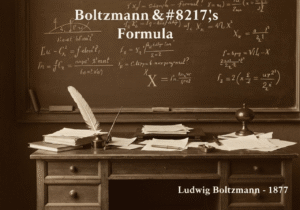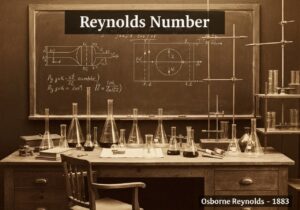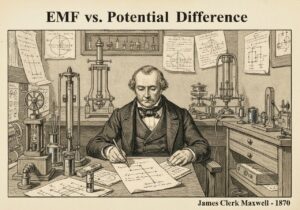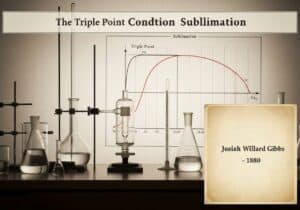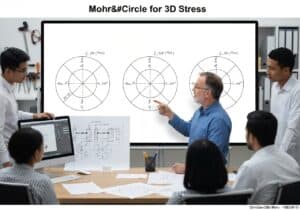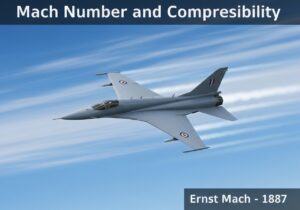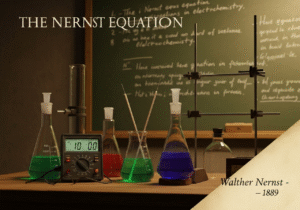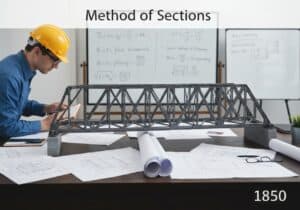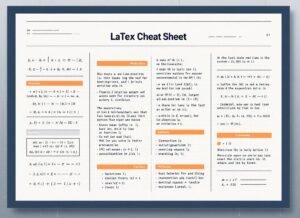Mohr’s circle is a two-dimensional graphical representation of the Cauchy stress tensor. It visualizes the transformation of normal stress ([latex]\sigma_n[/latex]) and shear stress ([latex]\tau_n[/latex]) on an arbitrarily oriented plane at a point. The abscissa of each point on the circle is the normal stress, and the ordinate is the shear stress, allowing for easy determination of principal stresses.
Mohr’s Circle for Stress
- Christian Otto Mohr
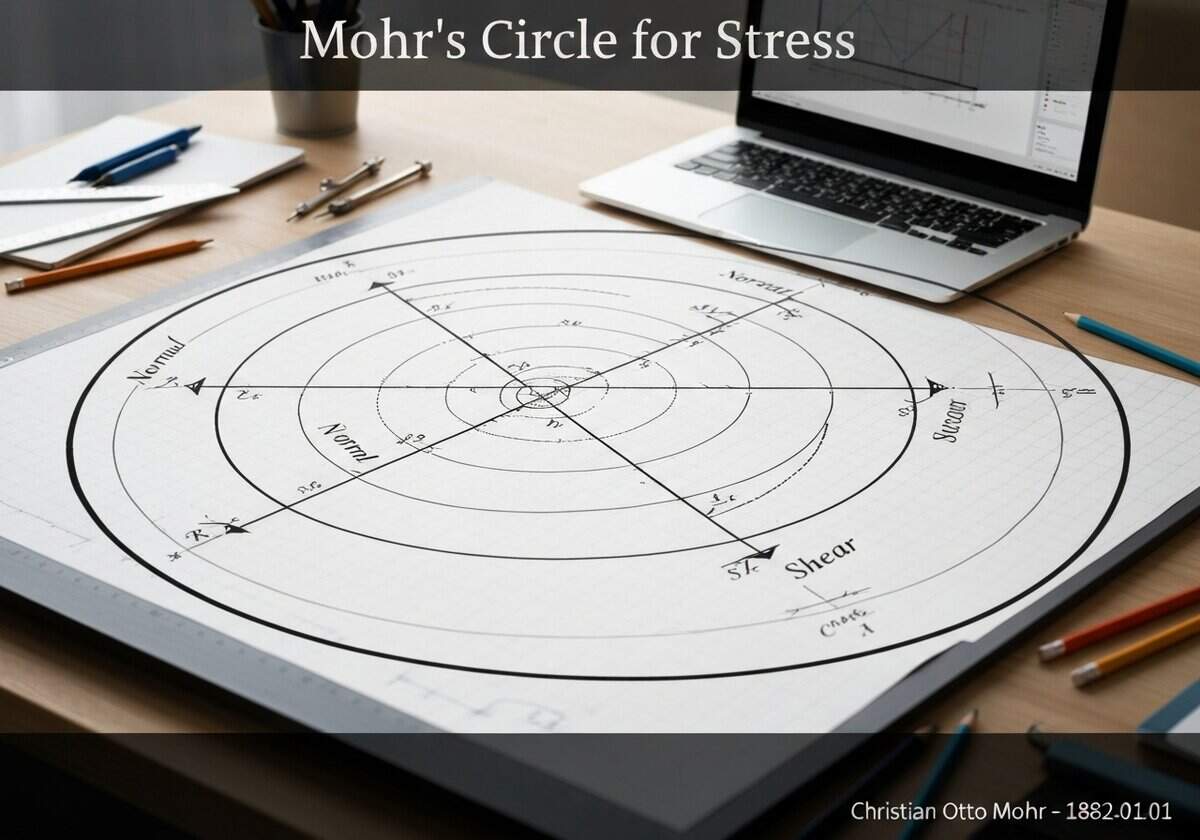
Mohr’s circle provides a powerful graphical tool to understand the state of stress at a point within a continuous body. For any given 2D stress state defined by normal stresses [latex]\sigma_x[/latex], [latex]\sigma_y[/latex] and shear stress [latex]\tau_{xy}[/latex], the circle allows one to find the stresses on any plane passing through that point. The center of the circle is located on the [latex]\sigma_n[/latex] axis at [latex]C = (\sigma_{avg}, 0)[/latex], where [latex]\sigma_{avg} = (\sigma_x + \sigma_y)/2[/latex]. The radius of the circle is calculated as [latex]R = \sqrt{\left(\frac{\sigma_x – \sigma_y}{2}\right)^2 + \tau_{xy}^2}[/latex]. Each point on the circumference of the circle represents the stress state ([latex]\sigma_n, \tau_n[/latex]) on a specific plane. A rotation of an angle [latex]\theta[/latex] of the physical plane corresponds to a rotation of [latex]2\theta[/latex] on Mohr’s circle in the same direction. This graphical metodo elegantly bypasses the need to solve the stress transformation equations directly for each angle, making it an intuitive and efficient method for engineers and physicists.
Historically, Christian Otto Mohr developed this method in 1882. It was a significant advancement over purely analytical methods, providing a visual aid that greatly simplified the complex mathematics of stress transformation. Before Mohr, engineers relied on Augustin-Louis Cauchy’s stress tensor formulation, which was powerful but less intuitive for practical design applications. Mohr’s graphical approach made the concepts of principal stresses and maximum shear stress accessible, which are fundamental to predicting material failure according to theories like Tresca’s or von Mises’ criteria.
Tipo
Interruzione
Utilizzo
Precursori
- Cauchy’s stress tensor theory
- Principles of stress transformation equations
- Coordinate geometry and the equation of a circle
- Euler’s work on principal axes of inertia
Applicazioni
- structural engineering for designing beams and columns
- geotechnical engineering for analyzing soil and rock stability
- mechanical engineering for designing machine components under load
- materials science for studying failure criteria
Brevetti:
Potenziali idee innovative
Livelli! Iscrizione richiesta
Per accedere a questo contenuto devi essere un membro di !Professionals (100% free)!
DISPONIBILE PER NUOVE SFIDE
Ingegnere meccanico, responsabile di progetto, ingegneria di processo o ricerca e sviluppo
Disponibile per una nuova sfida con breve preavviso.
Contattami su LinkedIn
Integrazione di componenti elettronici in plastica e metallo, progettazione in base ai costi, GMP, ergonomia, dispositivi e materiali di consumo di medio-alto volume, produzione snella, settori regolamentati, CE e FDA, CAD, Solidworks, Lean Sigma Black Belt, ISO 13485 in ambito medico
Stiamo cercando un nuovo sponsor
La tua azienda o istituzione si occupa di tecnica, scienza o ricerca?
> inviaci un messaggio <
Ricevi tutti i nuovi articoli
Gratuito, no spam, email non distribuita né rivenduta
oppure puoi ottenere la tua iscrizione completa -gratuitamente- per accedere a tutti i contenuti riservati >Qui<
Contesto storico
Mohr’s Circle for Stress
(se la data non è nota o non è rilevante, ad esempio "meccanica dei fluidi", viene fornita una stima approssimativa della sua notevole comparsa)
Principi di invenzione, innovazione e tecnica correlati
